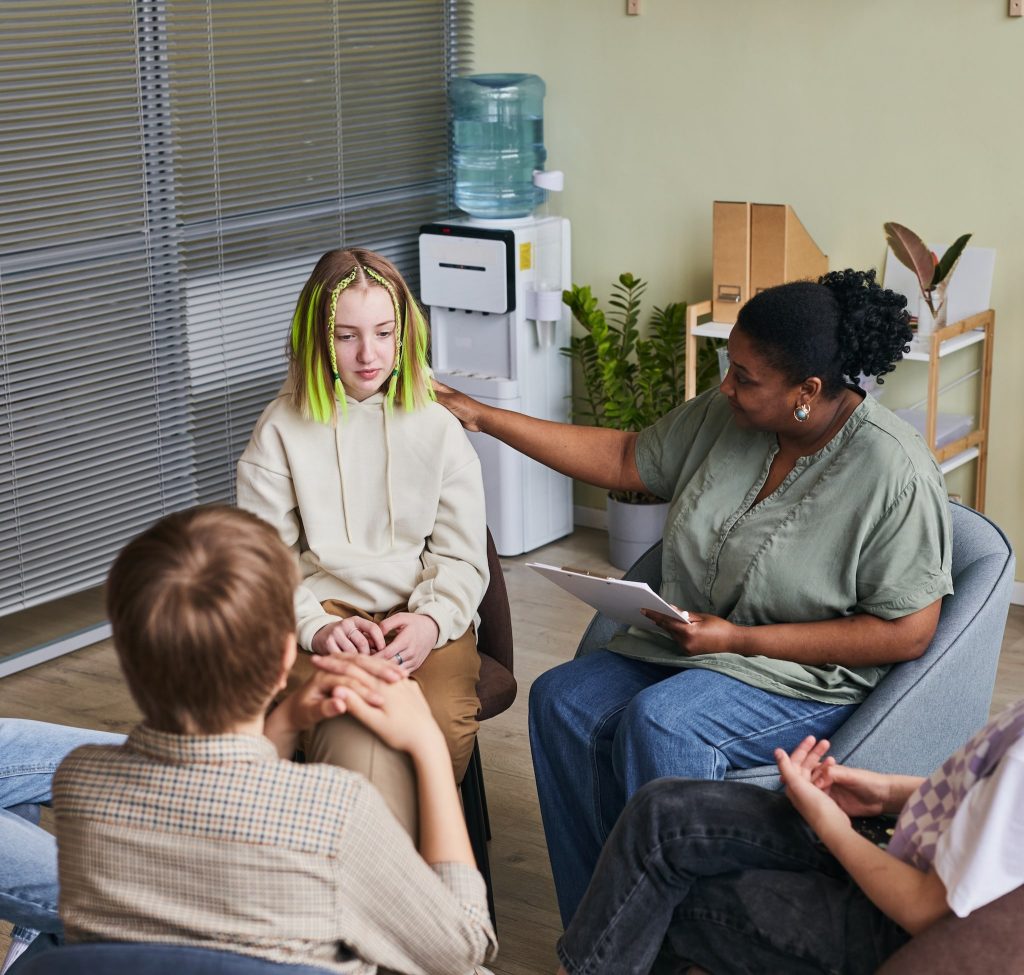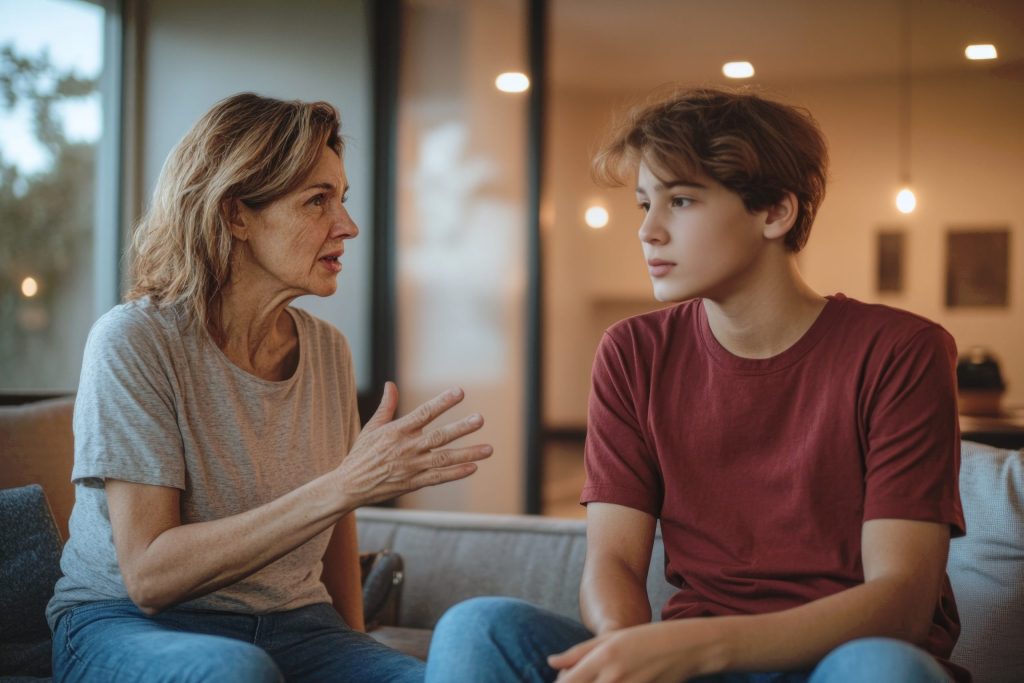Making sense of the therapy alphabet soup
You know your teen needs help.
You’ve also heard the terms—CBT, DBT, EMDR—perhaps from a referral, from other parents, or in your own online research.
But what do these acronyms mean? What will your child do in such sessions? And how do you know if it’s the right approach for them?
For many parents, the world of mental health therapy is intimidating, filled with clinical jargon and mystery. Developing a practical understanding of how therapy works is key.
This guide is designed to pull back the curtain, demystify common therapeutic approaches, and help you understand how they equip your teen with practical skills for a healthier future.

Beyond the acronyms: A focus on skills and healing
Teen therapy isn’t about endlessly discussing problems. At its core, it’s about learning to understand emotions, develop healthy coping mechanisms, and process difficult experiences so your child can build resilience and thrive.
Each therapeutic modality offers a unique toolkit for healing.

Cognitive behavioral therapy (CBT): Changing thoughts to change feelings
What is CBT?
Cognitive behavioral therapy (CBT) is one of the most widely used and evidence-based forms of talk therapy.
It’s based on the idea that our thoughts, feelings, and behaviors are interconnected. If we can change unhelpful thought patterns (cognitions), we can change how we feel and act.
How CBT works in teen therapy
A CBT therapist helps teens identify negative or distorted thought patterns (e.g., “I’m a failure,” “Everyone hates me”). They then learn how to challenge these thoughts and replace them with more realistic and helpful ones.
For example, a teen struggling with anxiety might learn to recognize anxious thoughts and develop strategies to calm their physical responses. CBT is highly practical, focusing on concrete skills your teen can use in daily life.
Why CBT is effective
CBT has a strong track record for treating conditions like anxiety disorders, depression, and certain eating disorders. The National Institute of Mental Health (NIMH) highlights CBT’s effectiveness in helping youth identify and change destructive thought patterns.

Dialectical behavior therapy (DBT): Mastering emotions and relationships
What is DBT?
Dialectical behavior therapy (DBT) is a specialized form of CBT, originally developed for individuals with intense emotional dysregulation.
It emphasizes balancing acceptance (of who you are and where you are) with the need for change. DBT focuses on teaching four core skill sets:
- Mindfulness: Being present in the moment and observing emotions without judgment.
- Distress tolerance: Coping with intense, overwhelming emotions without making things worse (e.g., self-harm, substance abuse).
- Emotion regulation: Understanding and managing intense emotions effectively.
- Interpersonal effectiveness: Asking for what you need, saying no, and maintaining healthy relationships while preserving self-respect.
How DBT works in teen therapy
DBT is often used with teens struggling with severe emotional outbursts, self-harm, suicidal ideation, or chaotic relationships. It’s highly structured and may involve individual therapy, group skills training, and phone coaching.
DBT provides a comprehensive toolkit for managing challenges, fostering emotional resilience, and improving the quality of relationships, including those with family members. Family therapy is often a component.
Why DBT is effective
Research consistently shows DBT to be highly effective for teens struggling with complex emotional and behavioral issues, providing them tangible skills to navigate intense feelings and build a life worth living.

Eye movement desensitization and reprocessing (EMDR): Healing from trauma
What is EMDR?
Eye movement desensitization and reprocessing (EMDR) is a specialized psychotherapy approach designed to help individuals process distressing memories and reduce the lasting impact of trauma.
It doesn’t erase memories but helps the brain reprocess them so they no longer cause intense emotional and physical reactions.
What is an EMDR session like?
In an EMDR session, your teen will recall a traumatic memory while simultaneously focusing on an external stimulus, typically side-to-side eye movements (or sometimes taps or tones).
This bilateral stimulation helps the brain process the memory, much as it does during REM sleep. The distressing memory gradually loses intensity, and the teen develops new, more positive thoughts about the event.
How EMDR works in teen therapy
EMDR is highly effective for teens who have developed PTSD following events like accidents, bullying, abuse, or the sudden loss of a loved one. It helps alleviate the flashbacks, nightmares, and intense emotional triggers that make life after such trauma so difficult.
Why EMDR is effective
The American Psychiatric Association and the World Health Organization both recognize EMDR as an effective treatment for trauma and PTSD, with numerous studies demonstrating its ability to help individuals find lasting relief from traumatic memories.

Beyond techniques: The power of connection
While understanding these different approaches is helpful, remember that the most powerful element in any therapy is the connection between your teen and their therapist.
A skilled, compassionate therapist can adapt these techniques to your child’s unique needs, creating a safe space where healing can truly begin.
At Avery’s House, we specialize in providing evidence-based, trauma-informed care.
Our therapists are expertly trained in a range of modalities, allowing us to create a personalized roadmap for your teen’s healing journey. We prioritize the trusting relationships that empower teens to face their challenges and build healthier futures.
If you’re ready to explore how these therapies can help your teen, contact Avery’s House today to learn more about our approach to compassionate care.